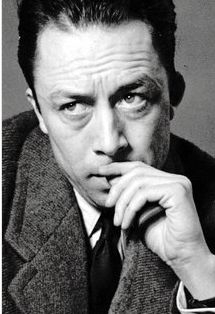L'État de Siège
Book Details
| Title: | L'État de Siège | ||||||||||
| Author: |
| ||||||||||
| Published: | 1948 | ||||||||||
| Publisher: | Gallimard | ||||||||||
| Language: | French | ||||||||||
| Tags: | drama, fiction | ||||||||||
| Description: | Malgré son sujet grave, le livre est une pièce légère car les traits des personnages sont exagérés, voire tournés en dérision. Elle pose la question suivante: que se passe-t-il quand la peste, personnifiée sous les traits d’un jeune opportuniste, prend le pouvoir dans un pays où rien ne bouge?
Écrite au lendemain de la Seconde Guerre mondiale, la pièce dénonce le fonctionnement des régimes totalitaires en démontant le mécanisme de soumission de la peur. Camus pense à la dictature d’Hitler, mais surtout à celle de Franco qui ne prendra fin qu'en 1975. En effet, la pièce se passe en Andalousie, à Cadix....
Le discours de Camus est universel. Il veut avant tout prévenir contre un éventuel retour de ce type de régime. Il aborde ainsi les thèmes de la résistance, de la révolte et de la liberté comme garde-fou contre la manipulation, la résignation, la soumission, la passivité.... Repousser ce danger suppose des concessions politiques, sociales, ou même—semble-il—privées.—fr.wikipedia. [Suggest a different description.] |
||||||||||
| Downloads: | 1,553 | ||||||||||
| Pages: | 123  |
Author Bio for Camus, Albert

Albert Camus (7 November, 1913—4 January 1960) was a French-Algerian author, journalist, and playwright best known for his absurdist works The Stranger (1942) and The Plague (1947). He won the Nobel Prize for Literature in 1957 at the age of 43, the second youngest recipient in history.
Born in Mondavi, French Algeria, Camus did well in school and was admitted to the University of Algiers where he studied philosophy and played goalie for the soccer team. He quit the team following a bout of tuberculosis in 1930, thereafter focusing on academic study. By 1936, he had obtained undergraduate and graduate degrees in philosophy. He became political during his student years, joining first the Communist Party and then the Algerian People's Party. As a champion of individual rights, he opposed French colonization and argued for the empowerment of Algerians in politics and labor. Camus would later be associated with the French anarchist movement. He was one of the few Allied journalists to condemn the American use of the...
Available Formats
| FILE TYPE | LINK | ||
| UTF-8 text | 20180950.txt | ||
| HTML | 20180950.html | ||
| Epub | 20180950.epub | If you cannot open a .mobi file on your mobile device, please use .epub with an appropriate eReader. | |
| Mobi/Kindle | 20180950.mobi | ![1. Download the .mobi file into your computer’s Downloads Folder.
2. Rename the file from [8-digit number].mobi to [my title].mobi.
3. Connect your Kindle to your computer using the Kindle USB cable.
4. Open the “documents” folder in the Kindle directory and Copy/Paste
the renamed .mobi file into the “documents” folder.
5. Eject your Kindle. The file will then appear in the Kindle Main Menu
as a New item with the new renamed file name. Info](/images/info.jpg) | Not all Kindles or Kindle apps open all .mobi files. |
| PDF (tablet) | 20180950-a5.pdf | ||
| HTML Zip | 20180950-h.zip |
Kindle Direct (New, Experimental)
Send this book direct to your kindle via email. We need your Send-to-Kindle Email address, which can be found by looking in your Kindle device’s Settings page. All kindle email addresses will end in @kindle.com. Note you must add our email server’s address, fadedpage@fadedpage.com, to your Amazon account’s Approved E-mail list. This list may be found on your Amazon account: Your Account→ Manage Your Content and Devices→ Preferences→ Personal Document Settings→ Approved Personal Document E-mail List→ Add a new approved e-mail address.
This book is in the public domain in Canada, and is made available to you DRM-free. You may do whatever you like with this book, but mostly we hope you will read it.
Here at FadedPage and our companion site Distributed Proofreaders Canada, we pride ourselves on producing the best ebooks you can find. Please tell us about any errors you have found in this book, or in the information on this page about this book.
